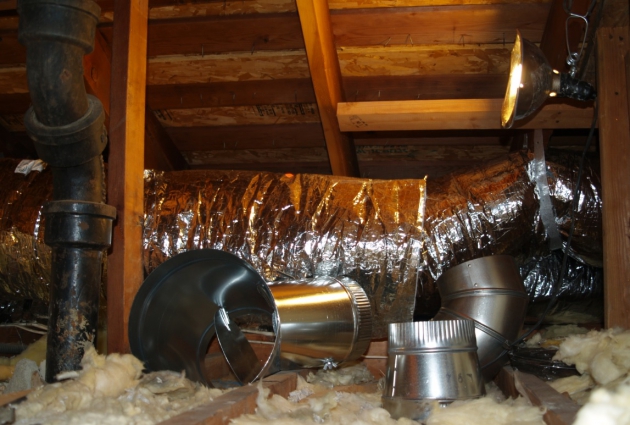Can a Roofer Work in the Rain? (What to Expect for Weather Delays)
The question of whether a roofer can work in the rain has been asked by many homeowners for a long time. It may interest you to know up front that it is possible for roofers to work in the rain. However, it is not advisable for a couple of reasons.
The primary concern for roofers is safety, both for the team and the property on which they are working. While caution is necessary when it comes to roofing in the rain, roofers still love the cooler temperatures, as the summer sun also comes with its downsides.
In this article, we discuss what to expect for weather delays during your roof repair, replacement, or installation projects. Visit our website thewinstonsalemroofers.com.
Why roofers won’t work in the rain
Things won’t always work according to our plans or schedules. Sometimes, rain comes unexpectedly. What can be done if the weather goes bad on the day that the roofer is supposed to work on your roof? Regardless of the inconvenience that rain can bring to you, your roofer won’t be able to work on your roof in the rain. This is mainly because the integrity of your new roof can be compromised if installed in the rain and puts the roofing crew and your home at risk.
The following are the main reasons why the roofer shouldn’t work in the rain:
Your home is put at risk
While your roof is being installed, it is exposed to the elements. So, when your roofing deck is exposed to rain and gets wet, it creates a breeding ground for the growth of mold and mildew, thereby causing the wood to rot or change in shape, and ultimately causing your new roof to fail.
Also, roofing materials can wrinkle or swell due to rain droplets, dew, condensation, or high humidity. This could cause your roof to buckle or ripple. If the materials underneath the shingles are wet, the shingles may not adhere properly or evenly.
The roofer is often held responsible for damage due to improper installation. Any roof failure that can be traced to defects in the installation often falls on the roofer’s shoulder. Roofers are aware of this fact and won’t do roof installation in the rain with the knowledge that quality workmanship cannot be guaranteed in wet conditions.
The roofers are put at risk
Roof installation comes with different safety risks; adding unfavorable conditions to the installation process makes things more dangerous. Installing a roof in the rain heightens the possibility of injury as the roof becomes slick. A roofer may slip or fall, resulting in serious injury, and your roof may become exposed. Also, should there the lightning, the tallest object around for it to strike might be the roof installation crew. Considering this, roof installation in the rain is not worth the risk.
The crazy part is that you may be held liable for any injuries to the roofer or damage to your property if the roofer is not properly insured. To prevent this, ensure that you don’t hire a roofer that does not have proper insurance in the first place, and also ensure that all safety protocols are followed by the roofers.
What if it starts to rain?
There are a few situations where the rain starts while roof installation is going on. When this happens, it is important that the roofer takes a measured approach. For example, rather than tearing off the roof completely for a replacement, the roofer can do the job in segments. The same approach is also effective for mere repairs. Damaged areas of the roof can be done one section at a time.
One good thing, however, is that rain can help to expose pooling segments or to see if water is draining effectively. A pooling segment is an indication of a problem in that area.
When roofs are torn in segments, it becomes easier to re-shingle individual segments before the roofer moves to the next segment. If the roofing project begins on a sunny day and the next day is predicted to be a rainy one, the roof remains unaffected throughout the project if things are being done in segments. Even if the predicted rain becomes an unexpected thunderstorm or high wind, the roof remains secure, and so are the contents of your home.
As stated earlier, roofers won’t do roof installation in the rain or wet conditions. The roof installation will not be continued in the rain, and they will have to wait until the site is dry for the safety of the installation crew and your roof.
A little flexibility helps
To save yourself unnecessary worries and stress, you may want to schedule your roof installation for a dry weather day. However, it is important to have a backup plan with your roofing contractor. On the day when the project is to start, keep an eye on the sky.
Be flexible during the project. If you notice cloud formations, you may want to postpone the project to a safer date. If all measures are taken, you and the roofer will be confident that the outcome of the project will be satisfactory.
Hiring the right roofers for the job
To get a quality job done, it is important that you get the right person on the job. Here are some of the things you want to ensure when trying to hire the right roofing contractor.
- Your roofing contractor must understand the adverse effects of rain and moisture during a roof installation.
- They must be qualified and certified for the products to be installed.
- They must be insured. This will protect you from being liable for anything that goes wrong during the project.
- They must have a good knowledge of what conditions will guarantee the best quality and durable roof.
- Your priorities must be put into consideration before your roofers make decisions about the project.
- Your roofer should have a plan for unexpected weather conditions to prevent hazards and damage.
Before hiring any contractor, ensure that you check out what past clients have to say about them. A great online resource for this is the Better Business Bureau.
Conclusion
Knowing the risks involved in working in the rain, roofers don’t perform roof installation in the rain. In planning against any unexpected weather conditions, however, they take different measures to ensure that your home and everyone on the installation team are safe.








